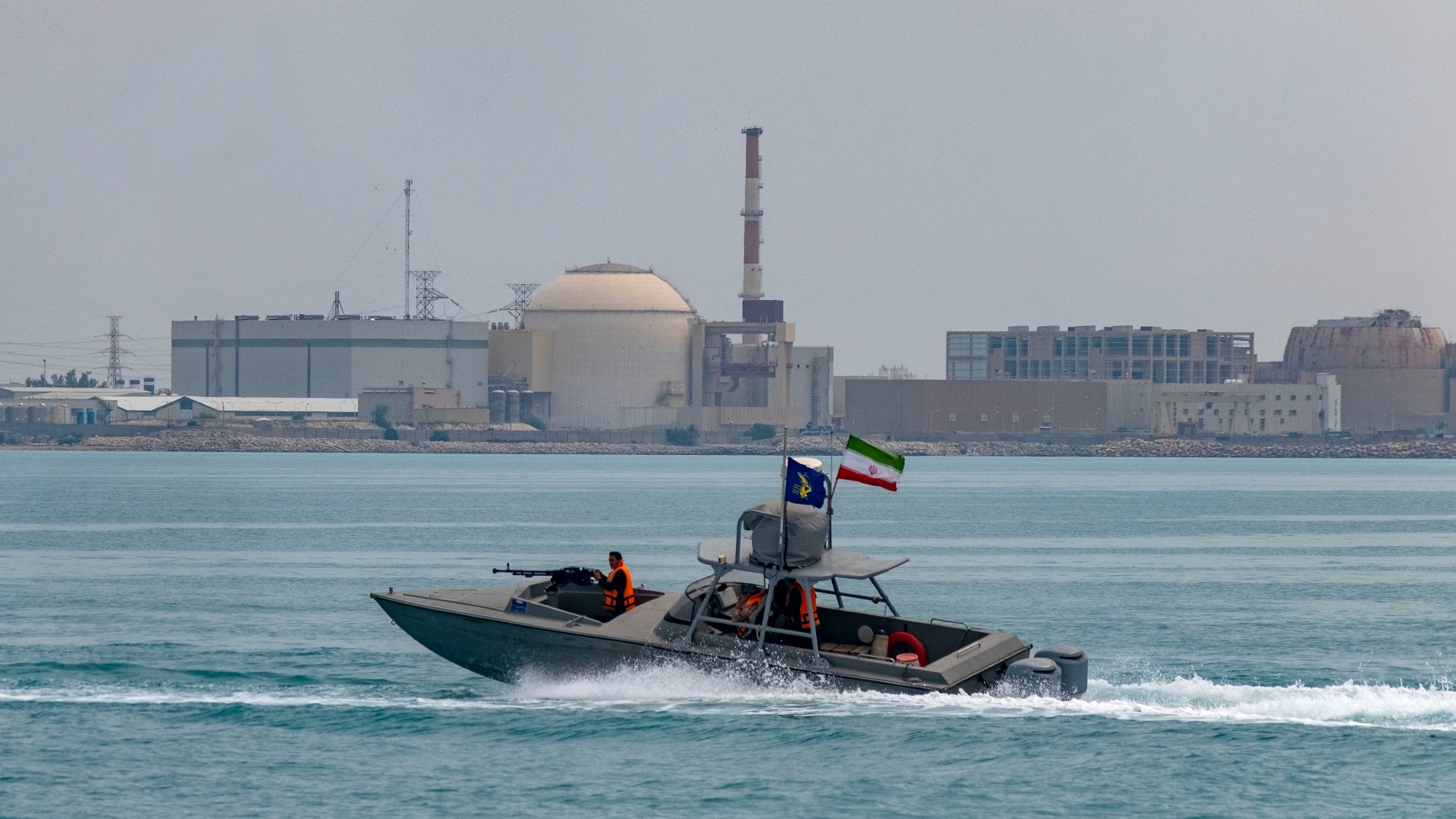What we know about Iran's nuclear programme
The global nuclear watchdog has declared Iran in breach of its non-proliferation obligations for the first time in 20 years

A free daily email with the biggest news stories of the day – and the best features from TheWeek.com
You are now subscribed
Your newsletter sign-up was successful
Benjamin Netanyahu has been claiming for decades that Iran is on the brink of acquiring nuclear weapons, said Paul Nuki in The Daily Telegraph. In 2012, he even took an image of a cartoon-style bomb onto the stage of the UN General Assembly, in a bid to persuade the global community to act. Tehran ridiculed him as "the boy who cried wolf" for his constant public warnings; and his repeated threats to destroy Iran's nuclear programme became a joke to some. But on 13 June, "Mr Iran" finally authorised a major assault intended to do just that.
He claims that the Iranians are so close to developing nuclear weapons, he had to act. But analysts have cast doubt on that, said Patrick Wintour in The Guardian. As recently as March, the US director of national intelligence, Tulsi Gabbard, went on record to say that Iran was not "actively pursuing a nuclear weapon".
Still, Israel has cause to be worried, said Ed Cumming in The Daily Telegraph. Iran's nuclear programme accelerated sharply after 2018, when Donald Trump collapsed the 2015 JCPOA nuclear deal. That agreement limited its uranium enrichment to 3.67% – only enough for civilian nuclear power. Now it has an estimated 400kg stockpile of uranium enriched to 60%, which, with a bit more enrichment, could be enough to build nine nuclear bombs.
The Week
Escape your echo chamber. Get the facts behind the news, plus analysis from multiple perspectives.

Sign up for The Week's Free Newsletters
From our morning news briefing to a weekly Good News Newsletter, get the best of The Week delivered directly to your inbox.
From our morning news briefing to a weekly Good News Newsletter, get the best of The Week delivered directly to your inbox.
Earlier this month, the global nuclear watchdog, the IAEA, formally declared Iran in breach of its non-proliferation obligations for the first time in 20 years. And though Israel has killed some 14 of Iran's nuclear scientists in its strikes so far, and damaged the vital Natanz nuclear facility, the enrichment plant at Fordow "remains unscathed".
Israel can't destroy Fordow with its publicly acknowledged weapons, said John Paul Rathbone and Charles Clover in the FT. Even the US's bunker-buster bombs might struggle to damage its centrifuges, buried 500 metres under a mountain and encased in concrete. But if Fordow is not put out of action, the Iranians might withdraw from the non-proliferation treaty, and rapidly assemble a nuclear weapon while under attack.
A free daily email with the biggest news stories of the day – and the best features from TheWeek.com
-
 ‘Poor time management isn’t just an inconvenience’
‘Poor time management isn’t just an inconvenience’Instant Opinion Opinion, comment and editorials of the day
-
 Bad Bunny’s Super Bowl: A win for unity
Bad Bunny’s Super Bowl: A win for unityFeature The global superstar's halftime show was a celebration for everyone to enjoy
-
 Book reviews: ‘Bonfire of the Murdochs’ and ‘The Typewriter and the Guillotine’
Book reviews: ‘Bonfire of the Murdochs’ and ‘The Typewriter and the Guillotine’Feature New insights into the Murdoch family’s turmoil and a renowned journalist’s time in pre-World War II Paris
-
 Will increasing tensions with Iran boil over into war?
Will increasing tensions with Iran boil over into war?Today’s Big Question President Donald Trump has recently been threatening the country
-
 Corruption: The spy sheikh and the president
Corruption: The spy sheikh and the presidentFeature Trump is at the center of another scandal
-
 Putin’s shadow war
Putin’s shadow warFeature The Kremlin is waging a campaign of sabotage and subversion against Ukraine’s allies in the West
-
 The fall of the generals: China’s military purge
The fall of the generals: China’s military purgeIn the Spotlight Xi Jinping’s extraordinary removal of senior general proves that no-one is safe from anti-corruption drive that has investigated millions
-
 US, Russia restart military dialogue as treaty ends
US, Russia restart military dialogue as treaty endsSpeed Read New START was the last remaining nuclear arms treaty between the countries
-
 What happens now that the US-Russia nuclear treaty is expiring?
What happens now that the US-Russia nuclear treaty is expiring?TODAY’S BIG QUESTION Weapons experts worry that the end of the New START treaty marks the beginning of a 21st-century atomic arms race
-
 Iran and US prepare to meet after skirmishes
Iran and US prepare to meet after skirmishesSpeed Read The incident comes amid heightened tensions in the Middle East
-
 Which way will Trump go on Iran?
Which way will Trump go on Iran?Today’s Big Question Diplomatic talks set to be held in Turkey on Friday, but failure to reach an agreement could have ‘terrible’ global ramifications